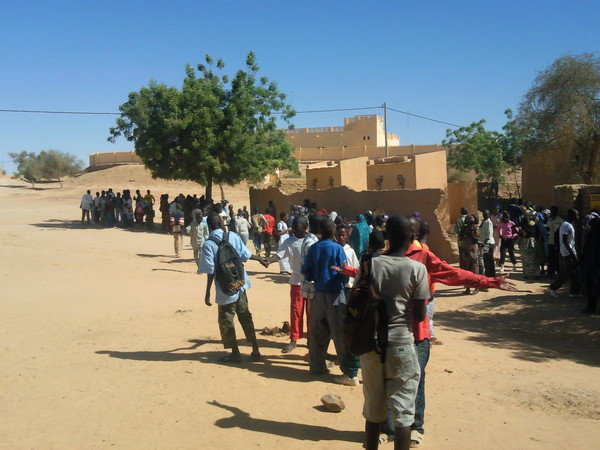The Ministry of Education, Literacy and National Languages of Mali organized in 2008 the « National Forum on Education », with more than 600 participants taking part in the works to make recommendations that constitute an instrument of reference for political authorities in the field of education. The forum was a good thing in its time, allowing on one hand to assess the implementation of the Education Development Program (PRODEC), but also to plan for the future. From 2008 to the present, the Ministry of Education is faced with a major problem, namely fraud in the organization of year-end examinations in secondary education as well as the fundamental one.
To address this problem in basic education, here are five concrete proposals that can seriously reduce, if implemented, fraud when organizing the D.E.F exam. (Diploma of Fundamental Studies).
1- Digitize candidates’ notes
The observation is very clear, and all the studies prove it, fraud has taken a significant place in our educational system. The phenomenon is favored by the lack of rigorous control of the hierarchical authorities over the work of school heads. The digitization of grades has the advantage of fighting a priori against any falsification of the annual grades of the candidates at the approach of the examinations. This is measure is accompanied by sending the grades to the C.A.P. (Inspection of Education) after each composition. As a result, the C.A.P. and the schools together establish the non-falsifiable annual grades.
2- Review the mobility policy of supervisory teachers
If at first we can conceive this measure as fighting against fraud, practice shows another reality. Indeed, the mobility of supervisory teachers raises more problems than solutions. The new code of local and regional authorities gives municipal authorities the right to organize the D.E.F.; the technical service, in this case the CAP, makes the proposal of the supervisory teachers to the head of the regional executive, channeled by the AE. (Education Academy), which makes a final decision. The decision includes the names of the resident supervisors, that is, those who remain in their own institution or in the municipality where they reside, and non-residents, those who move to supervise in other institutions (case of teachers who leave their municipalities for other municipalities). Teachers on the move face the problem of accommodation, food, transportation…
To correct this problem, the School Management Committees (CGS) organize themselves to house supervisors under optimal conditions, sometimes even in an unorthodox manner, with the consequence of a generosity that is clearly comparable to corruption. Around these receptions are organized, expectation systems between the welcoming and the welcomed to defraud in the examination rooms.
Supervisor mobility needs to be reviewed. On one hand, all the conditions must be fulfilled to enable the supervisors to do their job well, in particular by upgrading their per diem, which will take into account all factors of mobility. On the other hand, there must be a drastic reduction in the number of moving supervisors to alleviate the organization’s financial burden.
3- Provide examination centers with facilities for printing subjects on site
Modernity obliges, Mali must seriously consider introducing the use of new technology tools in the physical organization of examinations. The greatest challenge of the Department of Education in organizing the examination in the fundamental remains undoubtedly the leak of the subjects.
In the current organization of examinations, there are many participants in the routing of subjects in examining rooms; Subjects with very little protection, housed in envelopes with closed folds.
To combat the leakage of subjects, the government must endow all the examination centers with computer and printer. The system consists of sending the subject directly from Bamako (the capital of Mali) one hour before the start of each test to the president of the center who makes the draw thirty minutes before the test.
4- Swap copies between different education academies when correcting
« They are your brothers and sisters, your pupils and know also that you grade yourself », are words often heard in the correction centers to influence the correctors. The search for rank in the national success rate also plays a negative role on the smooth progress of the corrections phase, for chiefs of technical services lose their post in case of bad success rate. Alternating copies between different academies is an inexpensive way to fight fraud during corrections. The reintroduction of this measure is very necessary insofar as the academies are less rigorous in supervision during the corrections phase.
- Strengthen the legal system against fraud during examinations
To deter students, pupils’ parents and the professorial body, the repressive policy towards fraudsters must be up to par. The government must legislate in this area to be able to sanction those who indulge in this less glorious practice that no one should be proud of. Bruno Lussato said in 1981 that « the improvement of fraud techniques is much less expensive, in time and in money, than that of the means of prevention ». Therefore, it is up to the government to seek the means of its policy.
Yacouba Dramé (Teacher in Mopti)

